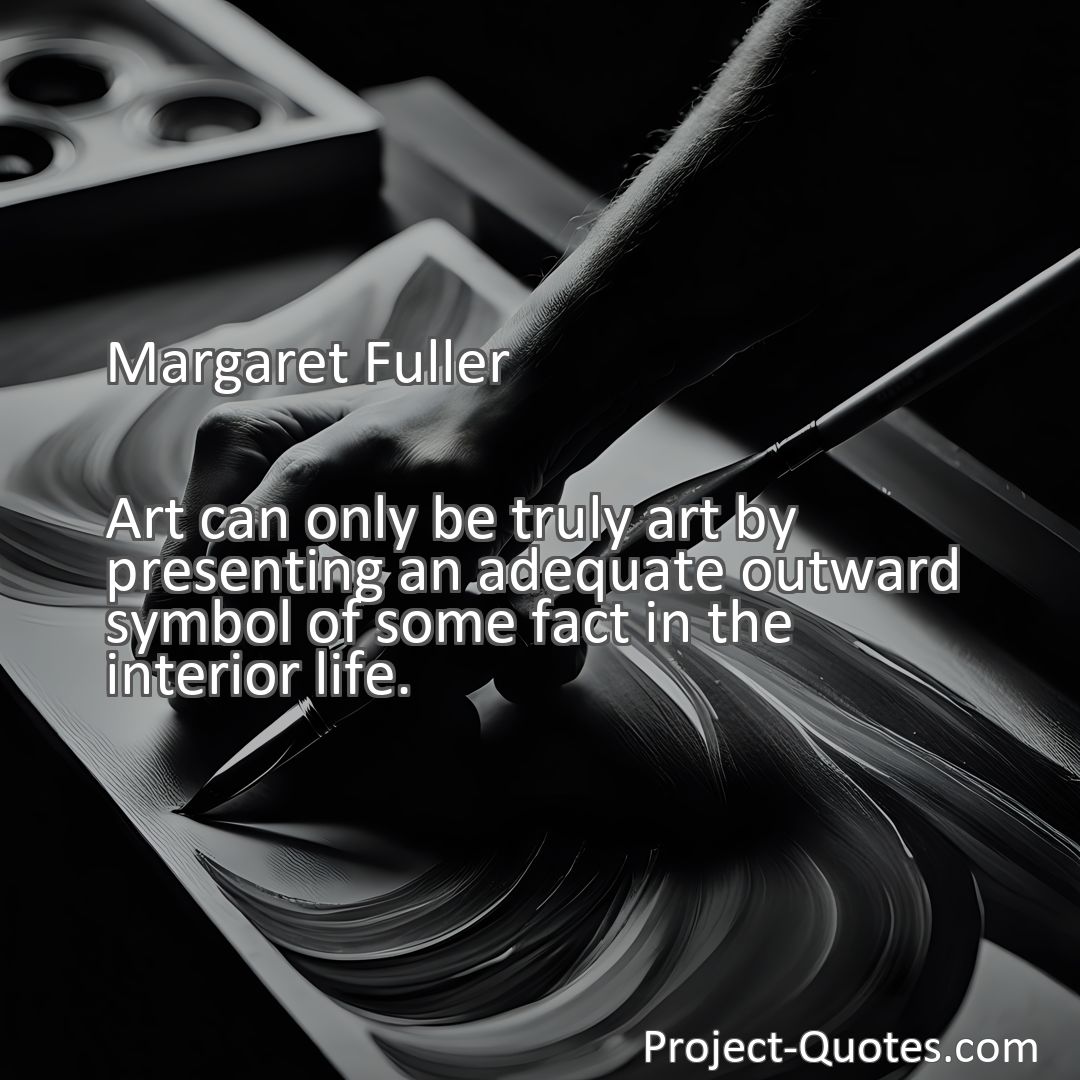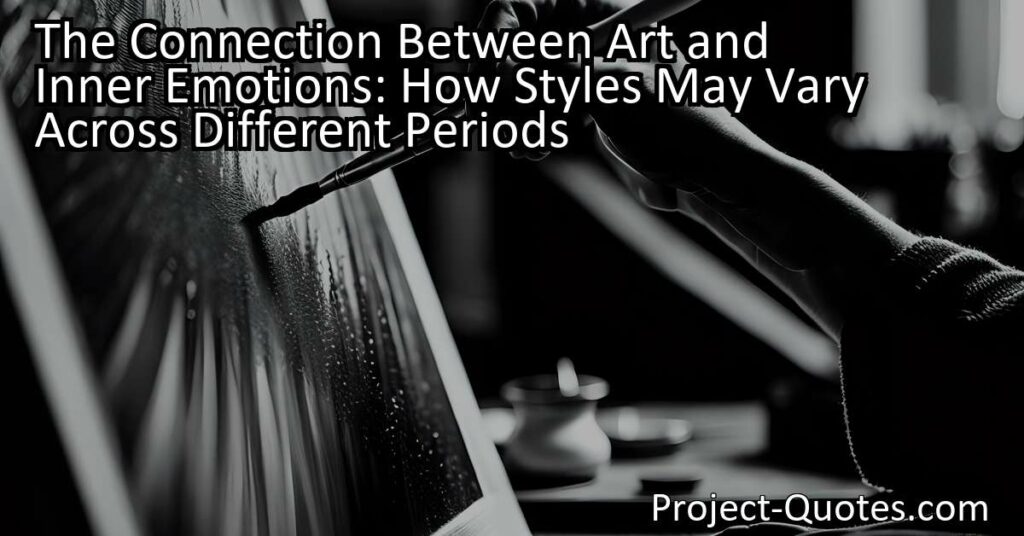Art can only be truly art by presenting an adequate outward symbol of some fact in the interior life.
Margaret Fuller
This engaging summary explores the profound connection between art and inner emotions, highlighting how different periods and civilizations have varied in their artistic styles. It emphasizes that through art, we can communicate complex emotions and experiences that words alone cannot capture, and how art serves as a vessel for challenging societal norms and fostering understanding. The summary also recognizes that the interpretation and experience of art are subjective, unique to each viewer.
Table of Contents
Meaning of Quote – Art can only be truly art by presenting an adequate outward symbol of some fact in the interior life.
Art can only be truly art by presenting an adequate outward symbol of some fact in the interior life. These insightful words by Margaret Fuller invite us to ponder the profound connection between art and the inner world of human emotions and experiences.
Art has always been one of the most powerful and captivating forms of expression known to humanity. Whether it is a beautiful painting, a captivating piece of music, a thought-provoking sculpture, or even a well-crafted poem, art allows us to delve into the depths of our souls and connect with something greater than ourselves.
What makes art unique is its ability to create an outward symbol that reflects aspects of our inner life. It serves as a mirror that reflects our joys, our sorrows, our struggles, and our triumphs. Through art, we find a way to communicate these complex emotions and experiences that often cannot be expressed adequately through words alone.
Take, for example, a painting by Vincent van Gogh, such as “Starry Night.” With its swirling brushstrokes and vibrant colors, the painting captures the artist’s struggle with mental health and his longing for solace and tranquility. Through this masterpiece, van Gogh provides us with an outward symbol of his interior life, immersing us in his world of emotions and inviting us to experience his pain and beauty.
Similarly, music has the power to transport us to different emotional landscapes. Whether it is Beethoven’s triumphant Fifth Symphony or Billie Holiday’s haunting rendition of “Strange Fruit,” music can evoke a wide range of feelings within us. It can speak to our deepest fears, our unbridled passions, and our innermost desires. It resonates within our minds and hearts, offering an outward symbol of our inner life.
When we encounter art that successfully presents an adequate outward symbol of our interior life, we often feel a deep sense of connection and understanding. It is as if the artist has reached into our souls and put into form what we could not express ourselves. Through their creations, they provide us with a sense of validation, reminding us that we are not alone in our experiences.
Moreover, art has the incredible power to transcend time and culture. Although the specific symbols and styles may vary across different periods and civilizations, the essence of art remains constant. Whether it is a cave painting from prehistoric times or a modern-day digital artwork, art continues to be a universal language that speaks to the human spirit.
However, it is essential to recognize that the creation and interpretation of art are deeply personal experiences. What may resonate with one person might not have the same effect on another. Art is subjective, and each individual brings their unique perspectives, backgrounds, and emotions to their encounter with it. Therefore, the outward symbol presented by a work of art may be interpreted and experienced differently by each viewer.
Art, in its various forms, has enriched human civilization for centuries. It has the power to challenge societal norms, provoke thought, and inspire change. Art serves as a vessel through which we can explore, question, and critically examine our world and ourselves. It is through art that we can challenge our assumptions, expand our perspectives, and foster empathy and understanding.
In conclusion, Margaret Fuller’s assertion that art can only be truly art by presenting an adequate outward symbol of some fact in the interior life resonates deeply with the human experience. Art has the capacity to reflect and translate our emotions, experiences, and innermost thoughts into tangible forms accessible to others. It bridges the gap between the internal and external worlds, enabling us to connect with others and find solace in shared humanity. The power of art lies not only in its ability to move us but also in its potential to transform society and contribute to the growth of individuals and communities alike.
I hope this quote inspired image brings you hope and peace. Share it with someone who needs it today!


